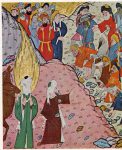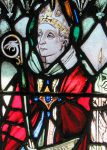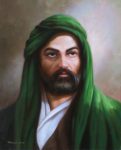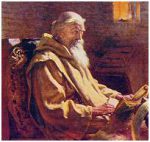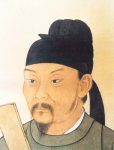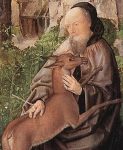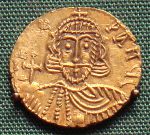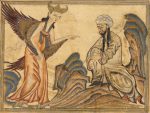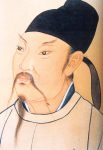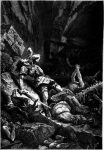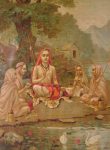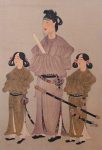Military leader. He won the Holy Land of Palestine for Islam and also opposed Ali, the founder of the Shiite branch of the religion.
Muslim caliph. He became the first caliph after the prophet's death.
Christian missionary, Saint. The Celtic monasteries of Iona (from which he came) and Lindisfarne (which he founded) became famous as beacons of culture, art and learning in a dark and violent time.
Wife of Mohammed. By supporting her father Abu-Bakr's claim to be the first Caliph and opposing Ali, the prophet's son-in-law, she became identified with the Sunni rather than the Shia branch of Islam.
Fourth caliph of Islam, cousin of Mohammed, and husband of the Prophet's daughter, Fatima. He was assassinated, but his life gave birth to the Shia branch of Islam (contrasted to the Sunni branch). The Shia branch also later gave birth to Sufism, a mystical interpretation of Islam.
Poet. His Gododdin relates the epic defense of Britain against Saxon invaders. It celebrates courage, struggle, and the lost Celtic civilization also immortalized in Mallory's Morte d'Arthur.
Priest, monk, author, and saint. He wrote in Latin on a multitude of subjects including sermons, saints' lives, Biblical commentaries, hymns, language, and natural history. His best-known work was The Historia Ecclesiastica Gentis Anglorum (Ecclesiastical History of the English People), which covers more than church history and is an invaluable source.
Poet and thinker. He wrote important works on ethics and conduct as well as on Hindu religious themes and on language.
Emperor. He forbade religious images.
Founder of Islam. Like Judaism and Christianity, Islam is a "religion of the book" rooted in the Hebrew bible. But its principal source is the Koran, which was revealed to Mohammed by the Angel Gabriel and written down for posterity. Mohammed was expelled from his native Mecca, in the Arabian Peninsula, for preaching his uncompromising form of monotheism, but eventually returned at the head of a conquering army.
Knight. He was an exemplar of chivalry and devotion to duty.

